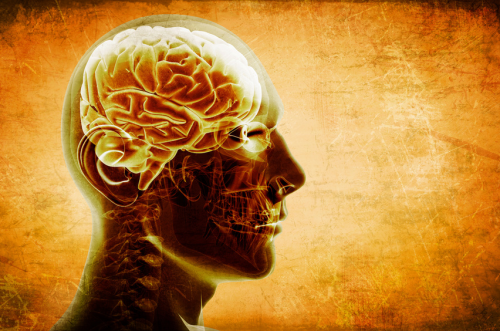Sleep Deprivation
 No matter what negative health conditions a person may have, the simple act of sleep seems to heal and lead to better health. Why exactly do humans need this time of "sleep?"
No matter what negative health conditions a person may have, the simple act of sleep seems to heal and lead to better health. Why exactly do humans need this time of "sleep?"
What is Sleep?
Some scientists say sleep can be divided into two distinct areas: an absence of wakefulness and an active conscious state.
- An Absence of Wakefulness - Not long ago it was believed sleep was a "progressive withdrawal from the waking world and wakefulness." Sleep was also described as a suspension from consciousness or a state of hibernation. This state was seen as a period somewhere between waking and death, in which there was not much going on in the body or the mind. Evidence was available which showed that the basic physiological processes slowed down during sleep, including breathing and brain waves. Most people agreed sleep was also a cessation of one's mental activity.
- An Active Conscious State - The first electroencephalographs (EEGs) during sleep took place in 1936 at Harvard Medical School. The results led to a major paradigm shift, showing the sleeping EEG to be slower than the waking EEG, but not uniformly. An entire set of different EEG patterns could be seen during the same short sleep period. Today's health care practitioners typically agree sleep is unique from wakefulness, but is an active state that is dynamic and has a lot of activity taking place.
The Function of Sleep
Some people think that they can "train" their bodies to need less sleep by gradually reducing the amount of sleep they get, allowing their brains to become accustomed to lower amounts of sleep.
Not true.
Recent research studies on sleep patterns show that getting less than six hours of sleep for several consecutive nights resulted in the individuals having impaired physical and mental performance equal to not sleeping at all for two nights in a row.
Some of the physical complaints seen in people who have been deprived of sleep include headaches, loss of appetite and gastrointestinal upset. One of the first signs of too little sleep is difficulty with concentration and short-term memory. The process which controls the ability to think slows down, creativity dissipates and reaction times become longer.
People who are sleep deprived tend to be irritable, causing tension at home and at work. When sleep deprivation becomes chronic this state can resemble serious mental disorders such as paranoia and schizophrenia. Many studies show that seriously sleep-deprived people can exhibit such bizarre behaviors as delusions of grandeur, hallucinations and aggression.
Do Humans Need Sleep?
Sleep is not an option - it is a necessity. When a person is sleep deprived, a period of "microsleeps" can occur - a brief period of time (sometimes just a few seconds long) where the brain enters a sleep state, sometimes without the person being aware of sleeping. During this time, the individual loses control of conscious thoughts and actions and does not recall anything that happens during the incident. The number of microsleeps which occur are directly related to how sleep deprived the person has become. The danger of microsleeps depends on the activities the person is attempting to perform, such as operating heavy machinery or driving a vehicle.
A few sleep-related accidents which have become famous include:
- The incident at the nuclear plant at Three Mile Island in 1979.
- The nuclear explosion in 1986 at Chernobyl.
- The Exxon Valdez oil spill in 1989 off the coast of Alaska.
It is estimated that more than 25,000 lives are lost each year due to accidents resulting from sleep deprivation.
Other Negative Outcomes
Sleep deprivation can result in many other negative circumstances, even when an accident does not occur. The primary time when the body performs restorative functions is during sleep. Some of these functions include repairing cellular damage, detoxification, and finding and destroying foreign invaders. Lack of sleep is also known to decrease some of the body's important immune system compounds, causing more frequent infections.
Insufficient sleep is also linked to premature aging. A study conducted at the University of Chicago found that after just six days of reducing sleep from eight hours to four hours resulted in significant physiological deterioration in otherwise healthy participants. The people in the study took 40 percent longer to regulate their blood sugar and their ability to regulate and produce insulin dropped to 30 percent below normal. The study concluded getting too little sleep adversely affects the body's ability to regulate insulin levels and blood glucose.
The inability of the body to regulate blood sugar and insulin is recognized today as a primary factor in such chronic degenerative diseases as obesity, memory impairment, diabetes, hypertension and cardiovascular disease.
When a person consistently "undersleeps," it may take several weeks of routinely sleeping more than eight hours per night to completely restore the brain and the body to a healthy, well-functioning state.
References
- Lack, L. et al.(2003). Insomnia : how to sleep easy. Double Bay, N.S.W. : Media 21 Publishing.
- Servan-Schreiber, D. (2006). The Duke encyclopedia of new medicine : conventional and alternative medicine for all ages. London : Rodale.
- Vukovic, L. (2005). Overcoming sleep disorders naturally. Laguna Beach, CA : Basic Health.
- Wilfred, P. (2010). Sleepmanual : how to achieve the perfect night's sleep. London : New Holland.
Posted in Sleep Deprivation
Ask a Question Or Join a Discussion


